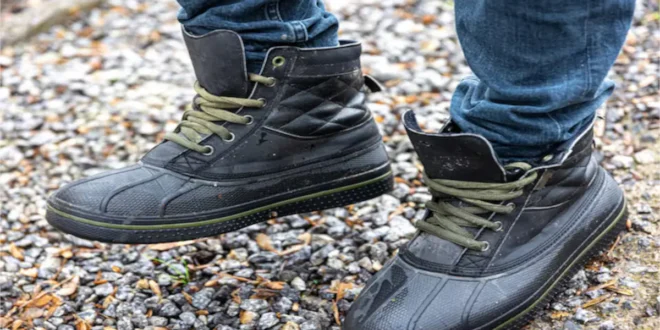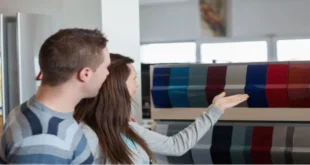Introduction: Why Comfortable Work Shoes Are a Must-Have
When it comes to workplace productivity, comfort often plays a silent yet pivotal role. Whether you’re on your feet all day or stuck in a chair for hours, the right work shoes can make all the difference. Uncomfortable footwear can lead to fatigue, decreased focus, and even long-term health issues. So, how do you find the perfect pair of comfortable work shoes? Let’s dive into the essentials of choosing, maintaining, and enjoying shoes that will keep your feet happy throughout the workday.
Why Comfortable Work Shoes Matter
Work environments demand much from us—physically, mentally, and emotionally. Poor footwear adds unnecessary strain, leading to problems such as:
- Foot pain and blisters.
- Lower back discomfort caused by lack of support.
- Postural issues from wearing ill-fitting shoes.
- Reduced productivity from constant discomfort.
Comfortable work shoes are not just about avoiding pain; they’re about optimizing performance. From supporting long hours of standing to providing protection in industrial settings, the right pair of shoes is a game-changer.
Key Features of Comfortable Work Shoes
Finding the perfect work shoes is a balance of style, functionality, and comfort. Here are the must-have features to look for:
1. Ergonomic Design
Shoes designed with ergonomics in mind promote natural alignment and reduce pressure points. Look for features like:
- Contoured insoles.
- Arch support for your foot type.
- A padded collar and tongue to prevent friction.
2. Breathable Materials
Sweaty feet can lead to discomfort, odor, and even infections. Breathable materials such as mesh, leather, or moisture-wicking linings keep your feet dry and comfortable.
3. Cushioning
Cushioned soles absorb impact, which is especially important for those who walk or stand all day. Memory foam and gel inserts are popular choices.
4. Slip Resistance
Workplace safety often depends on proper traction. Slip-resistant soles are a must, particularly for those in healthcare, hospitality, or industrial jobs.
5. Lightweight Build
Heavy shoes can tire your legs over time. Lightweight designs reduce strain without compromising durability.
6. Proper Fit
Ill-fitting shoes can cause everything from bunions to blisters. Always measure your feet and try shoes on at the end of the day when your feet are slightly swollen for the most accurate fit.
Top Categories of Comfortable Work Shoes
Different professions have unique footwear needs. Here’s a breakdown of the best types of work shoes for comfortable work shoes various job roles:
1. Office Work
For desk jobs, style and comfort go hand in hand. Popular options include:
- Loafers and Flats: Offer a professional look while being easy to slip on and off.
- Oxford Shoes: A classic choice for men and women.
- Sneaker-Style Dress Shoes: Combine formal aesthetics with the comfort of sneakers.
2. Healthcare Professionals
Doctors, nurses, and other medical workers are on their feet for hours. Key features include:
- Clogs: Brands like Crocs and Dansko are favorites for their slip-resistant soles and arch support.
- Athletic Sneakers: Offer superior cushioning and support for long shifts.
3. Retail and Hospitality
Those in customer service or hospitality need stylish yet functional footwear:
- Non-Slip Sneakers: Ideal for navigating busy floors.
- Comfortable Flats: Stylish options with added cushioning for all-day wear.
4. Industrial and Construction Jobs
Workers in industrial and construction settings face challenging environments that demand footwear designed for durability, safety, and all-day comfort. Choosing the right shoes in this category isn’t just about comfort—it’s about protecting yourself from potential workplace hazards. Here’s a detailed look at what makes a great pair of shoes for these physically demanding roles:
Steel-Toe Boots
Steel-toe boots are a staple in construction and industrial jobs. They provide essential protection against falling comfortable work shoes tools, heavy objects, or accidental impacts that could otherwise cause serious injuries. Modern steel-toe boots are designed with lightweight materials and ergonomic padding, ensuring that safety doesn’t compromise comfort.
- Best for: Construction workers, warehouse staff, and mechanics.
- Features to look for: Padded collars, shock-absorbing soles, and slip-resistant outsoles.
- Pro tip: Opt for composite-toe boots if you want the same protection with reduced weight and better comfortable work shoes insulation in extreme temperatures.
Waterproof Work Boots
Outdoor workers often face wet or muddy conditions, making waterproof boots a must-have. These boots keep your feet dry and prevent discomfort or infections caused by prolonged exposure to moisture.
- Best for: Landscapers, utility workers, and road construction crews.
- Features to look for: Sealed seams, breathable waterproof membranes, and durable outsoles for traction on slippery surfaces.
- Pro tip: Look for boots with moisture-wicking linings to keep your feet dry from both external moisture and comfortable work shoes sweat.
Puncture-Resistant Soles
Sharp objects like nails, screws, and glass are common hazards in industrial and construction sites. Puncture-resistant soles provide a barrier that prevents injuries from penetrating materials underfoot.
- Best for: Construction laborers, electricians, and factory workers.
- Features to look for: Heavy-duty rubber soles with embedded metal or Kevlar layers.
- Pro tip: Ensure the boots meet ANSI or OSHA safety standards for your specific work environment.
In these demanding fields, safety and comfort go hand in hand. Investing in high-quality work boots not only protects you but also keeps you comfortable through long shifts, enabling you to focus on your tasks without comfortable work shoes distractions.
5. Teachers and Educators
Teachers and educators are often on their feet for hours, moving between classrooms, standing during lectures, or walking across sprawling campuses. For these professionals, finding shoes that balance comfort, support, and style is essential. Here are the best options:
Supportive Sneakers
Sneakers designed for long wear are a popular choice for educators. They offer excellent arch support, cushioning, and flexibility, making them ideal for all-day standing and walking.
- Best for: Teachers who are frequently on the move, including gym teachers and those who work with young comfortable work shoes children.
- Features to look for: Memory foam insoles, lightweight construction, and breathable materials.
- Pro tip: Choose sneakers with neutral colors or sleek designs to maintain a professional appearance in formal settings.
Orthopedic Flats
Orthopedic flats are a lifesaver for educators dealing with foot pain or conditions like plantar fasciitis. Unlike comfortable work shoes regular flats, orthopedic versions provide arch support, cushioning, and a shock-absorbing sole, ensuring comfort without sacrificing style.
- Best for: Teachers looking for a balance between style and comfort.
- Features to look for: Removable insoles for custom orthotics, a wide toe box, and non-slip outsoles.
- Pro tip: Pair orthopedic flats with compression socks to enhance blood circulation during long days.
Best Brands for Comfortable Work Shoes
Several brands have earned a reputation for producing reliable, comfortable work shoes. Here are some top recommendations:
1. Clarks
Known for their timeless style and unbeatable comfort, Clarks offers loafers, flats, and boots that are ideal for office workers.
2. Skechers
With memory foam soles and a lightweight design, Skechers shoes are popular across multiple industries.
3. Dansko
A go-to brand for healthcare professionals, Dansko clogs are known for their ergonomic support.
4. Timberland PRO
Perfect for industrial workers, Timberland PRO boots combine safety features with lasting comfort.
5. Nike and Adidas
For jobs requiring a sporty edge, these brands provide advanced cushioning and breathable materials.
How to Choose the Right Shoes for Your Needs
Selecting the perfect pair of comfortable work shoes requires thoughtful consideration. Here are some practical comfortable work shoes tips:
1. Identify Your Workplace Demands
- Office workers can prioritize style and lightweight designs.
- Manual laborers should focus on safety features like steel toes and slip resistance.
2. Know Your Foot Type
Understanding your arch type (flat, normal, or high) can help you choose shoes with the right support.
3. Consider Orthotics
Custom orthotics or inserts can enhance comfort, especially if you have specific foot conditions like plantar fasciitis.
4. Test Shoes Thoroughly
- Walk around in the store to assess comfort.
- Check for adequate toe space and heel stability.
5. Read Reviews
User feedback can provide insights into the durability and comfort of a shoe model.
Maintaining Your Work Shoes
Once you’ve found your dream pair, proper maintenance can extend their lifespan and comfort:
1. Clean Regularly
Remove dirt and stains to keep your shoes looking and feeling fresh.
2. Replace Insoles
Over time, insoles lose their cushioning. Replacing them can rejuvenate your shoes.
3. Alternate Pairs
Wearing the same pair daily can cause quicker wear and tear. Rotate between two or more pairs.
4. Waterproof When Needed
Use a waterproof spray for leather or fabric shoes to protect them from moisture.
Common Myths About Comfortable Work Shoes
Let’s debunk some common misconceptions:
1. “Comfortable Shoes Can’t Be Stylish”
With advancements in design, many brands now offer shoes that are both fashionable and functional.
2. “Expensive Shoes Are Always Better”
While price can indicate quality, plenty of affordable options deliver exceptional comfort.
3. “Breaking In Shoes is Necessary”
Modern shoes are designed for immediate comfort. If they feel uncomfortable during a try-on, they probably aren’t the right fit.
Conclusion: Invest in Comfort for Long-Term Gains
Your feet are the foundation of your daily routine, and comfortable work shoes are an investment in your well-being and productivity. From selecting the right features to maintaining them properly, a little effort goes a long way in ensuring your footwear supports your lifestyle. Whether you’re a busy professional, a hands-on worker, or anything in between, prioritize comfort and watch as your workday transforms for the better.
Final Thoughts
When it comes to work shoes, comfort is not a luxury—it’s a necessity. By choosing the right pair, you’ll not only enhance your work performance but also protect your overall health. So, step into comfort and stride confidently toward a more productive and pain-free work life!
Frequently Asked Questions (FAQs)
What are the most important features to look for in comfortable work shoes?
The key features to consider are proper arch support, cushioning, a snug yet flexible fit, breathable materials, and slip-resistant soles. These elements ensure all-day comfort, prevent foot fatigue, and cater to various workplace needs.
Are expensive work shoes always better for comfort?
Not necessarily. While some high-end brands offer excellent features, many affordable options deliver comparable comfort and durability. The most important factor is finding shoes that fit well and meet your specific work requirements.
How can I ensure my work shoes last longer?
To maximize the lifespan of your work shoes, clean them regularly, replace worn insoles, waterproof them if needed, and alternate pairs to reduce wear and tear. Proper storage and regular maintenance also play a vital role.
Can comfortable work shoes also be stylish?
Absolutely! Many brands now offer work shoes that balance functionality with modern designs. Options like sneaker-style dress shoes, chic flats, and contemporary clogs provide comfort without compromising style.
How do I know if my work shoes are the right fit?
Your work shoes should have enough room to wiggle your toes, snugly support your heels, and align with your arch type. Trying shoes on at the end of the day when your feet are slightly swollen can help you find the perfect fit.
Are orthotics necessary for work shoes?
Orthotics can be a game-changer if you experience foot pain or have conditions like plantar fasciitis. Many comfortable work shoes are compatible with custom or over-the-counter orthotics, allowing for enhanced support and personalized comfort.
READ ALSO: Panasonic Aircon Remote: The Complete Guide to Features, Functions, and Troubleshooting
 Touch Blog
Touch Blog



